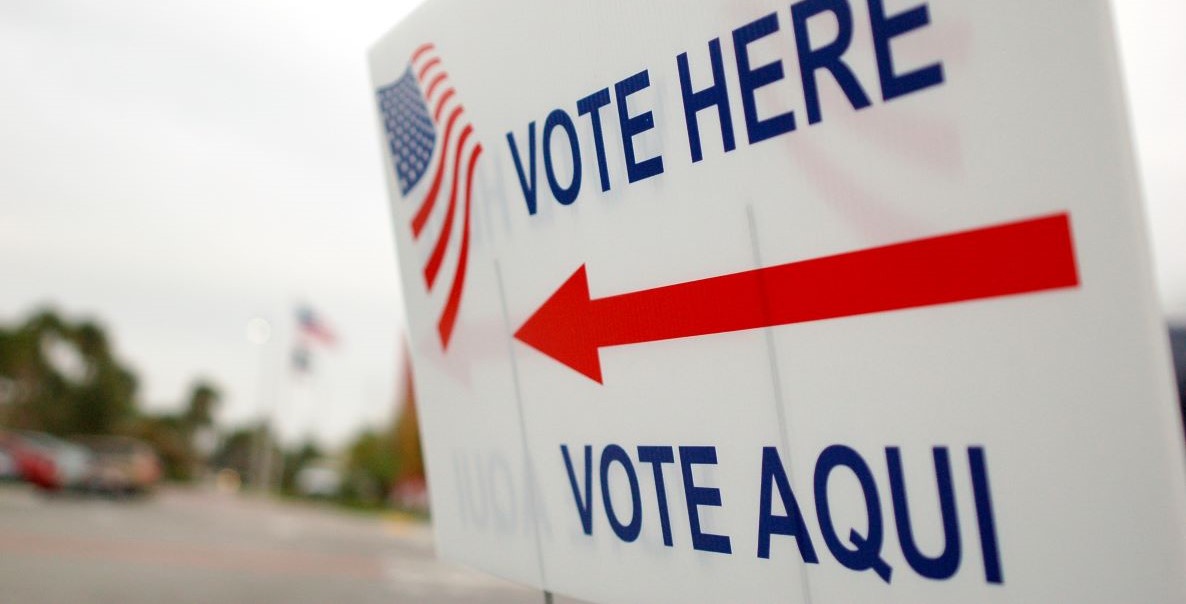This year’s election will likely be decided by Latino voters. They are the nation’s fastest-growing demographic group, including in many battleground states such as Pennsylvania. These voters could be swayed into Joe Biden or Donald Trump’s column, as most of them have little loyalty to either major party. In the last election, the majority of Pennsylvania Latinos voted for Democrats, but this group is showing an undeniable rightward trend due to economic issues, shifts in religiosity and education.
These are some of the arguments in Mike Madrid’s The Coming Latino Century, a book with enormous relevance to anyone who cares about politics, our country’s future and whether democracy will survive.
The book is in part a memoir of Madrid’s life and experiences in Southern California. He came of age in the Reagan era and admired his fellow Californian for his optimism, his welcoming attitude toward immigrants, and his moral clarity regarding free markets and democracy. Madrid grew up poor, but his family was eventually able to buy a house in suburban Ventura County. He loved Reagan’s insight that Hispanics are Republicans but just don’t know it yet. At one point his parents explained that Reagan was for the rich, and Democrats were for the poor. As he put it, who wants to give their loyalty to a party that expects you to remain poor? Instead, he fell in love with a Republican Party focused on economic opportunity, pride in family and patriotism. For the next 30 years, he mastered the art and science of polling, data analysis and how to mobilize voters through campaigns and targeted ads.
Madrid was tapped to run the California GOP after Governor Pete Wilson alienated the state’s burgeoning Hispanic population. He got used to being attacked as a Republican token by Latino Democrats, and he ably encouraged Republicans to take Latino voters seriously. They generally ignored this advice, clinging instead to ideological orthodoxy. In time, they went from being the Golden State’s dominant political party to a permanent minority.
In Madrid’s view, Democrats have often done little better at understanding Latinos. Nevada is a useful case study. On the eve of that state’s 2016 caucus, Democrats made a tone-deaf pitch: they presented Hillary Clinton to Latinos as comparable to everyone’s abuela, or grandmother. It didn’t resonate, to say the least. Latinos rebelled and threw their support to Bernie Sanders.
Latinos are exceptionally diverse, divided by country of origin, number of generations in the U.S., education and region.
Clinton learned the hard way that Latino voters are not like Black voters, who tend to be loyal Democrats, or at least deeply fearful of the GOP’s agenda. Latinos may see themselves as caught between an American identity and a Mexican one (as in Madrid’s case), but that does not mean they feel like victims of discrimination. Nevada has grown so rapidly, and with it the state’s Latino voting-age population, that the electorate changes significantly every four years. As Madrid observes, there are major generational differences. Second-generation Latinos often do not speak Spanish but are hypersensitive to slights or threats to any Hispanic immigrants. Third-generation Latinos tend to reflect their class and educational levels; in short, they have assimilated.
Madrid’s perspective reflects the experience of Pennsylvania Latinos, the vast majority of whom are U.S. citizens, speak English and work in blue-collar jobs. They’re considerably younger, at a median age of 27, than the state average of 44. As Madrid puts it, these are people who face problems in terms of affordable housing and childcare but are also coming into their own as earners, as parents, and as citizens.
Latinos are exceptionally diverse, divided by country of origin, number of generations in the U.S., education and region. Cubans and Venezuelans fled left-wing dictatorships and thus have proven the most receptive to Republicans’ pitch that Democrats are would-be communists. By contrast, Puerto Ricans tend to be Democratic loyalists. Mexican Americans, by far the biggest group, were once overwhelmingly Democratic outside of Texas but have trended conservative in recent elections. Madrid observes that much of this shift had to do with economic disruptions during the Covid pandemic. Republicans wanted to open the economy, and this got the attention of blue-collar workers, for whom not working was a bigger threat than contracting Covid.
It’s easy to misunderstand and mischaracterize Latinos. For instance, an immigration advocacy group oversampled Spanish-speaking Latinos, skewing the results and convincing a generation of Democrats that advocating immigration reform, rather than border security, was the best way to attract Latino support. President Biden’s recent moves to sharply limit asylum applications and ensure that illegal immigrant spouses of U.S. citizens who have been in the country for ten years can apply for legal residency finds the political center of the large, deeply pragmatic, and skeptical Latino demographic.
One of the most striking aspects of American political life is that older Whites, many of whom have enjoyed a life mostly peaceful and prosperous, tend to be the angriest about the state of the country and deeply pessimistic about its prospects. A major factor in their discontent is the idea that the country is becoming vastly more demographically diverse. By contrast, Latinos tend to be considerably younger, poorer and less educated than Whites, but optimistic about the country and its future.
Latino voters pose a challenge for both major parties. The one that can address their aspirations and needs will likely dominate political life for a generation. Madrid thinks that America’s salvation will be found when its political leaders re-embrace pragmatism and problem-solving, and when the country realizes that pluralism opens new possibilities for the American experiment.
John Hinshaw is a professor of history at Lebanon Valley College.
The Citizen welcomes guest commentary from community members who represent that it is their own work and their own opinion based on true facts that they know firsthand.
![]() MORE ON THE 2024 ELECTION
MORE ON THE 2024 ELECTION



